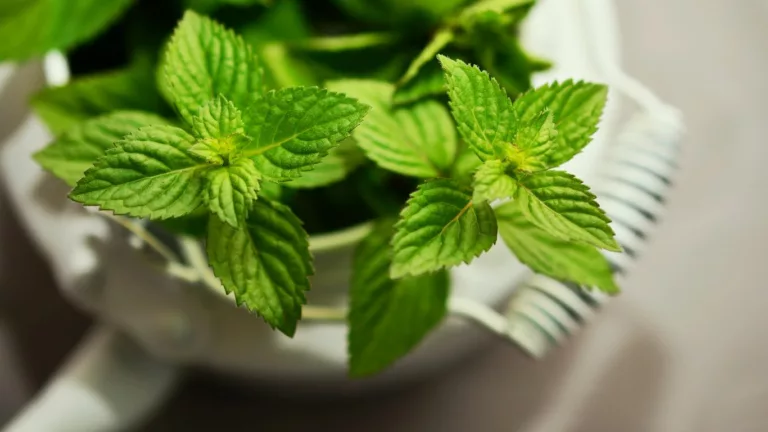Effective GERD Treatment at Home: Natural Remedies and Daily Relief Tips
When I first started dealing with GERD, I was desperate for relief—but I didn’t want to rely solely on medications. I needed something sustainable and gentle. Over time, I discovered that many of the most effective treatments for acid reflux can happen right at home, using nothing more than daily habits and simple natural remedies.
This article is for anyone trying to manage GERD symptoms without harsh interventions. It builds on the ideas from our full guide on natural GERD remedies that actually work and offers a closer look at what you can start doing immediately—at home—to make your days and nights more comfortable.
What Happens During a GERD Flare-Up?

GERD, or gastroesophageal reflux disease, causes stomach acid to creep back into the esophagus, leading to burning, pressure, or a sour taste. These episodes can be random or triggered by specific behaviors—late meals, certain foods, or stress. While medications like PPIs (proton pump inhibitors) are often prescribed, they’re not always a long-term solution.
That’s why many of us turn to home-based remedies—to address the cause, not just the symptoms.
Simple and Effective Natural GERD Relief at Home

1. Start the Day with Lukewarm Water and Apple Slices
This is something I picked up from an integrative nutritionist. Drinking a glass of warm (not hot) water first thing in the morning helps gently wake up the digestive system. Adding a few slices of peeled apple gives a soothing, fibrous start that’s less acidic than citrus fruits.
2. Avoid Trigger Combinations
GERD isn’t always about one single food—it’s often the combination. Fat + acid, or sugar + caffeine, are common culprits. For instance, having coffee with a buttered pastry may cause more irritation than either item alone. Keeping a food diary helped me pinpoint combos that caused the most flare-ups.
3. Use a GERD Wedge Pillow
If you suffer from nighttime reflux, this one’s essential. A wedge pillow gently props up your upper body, making it harder for acid to escape upward. Unlike regular pillows, wedges support your entire torso. It made a big difference in my sleep quality—and in how I felt the next morning.
Natural Soothers That Actually Work

Chamomile or Slippery Elm Tea
When reflux hits, a warm, caffeine-free herbal tea can help soothe the throat and stomach lining. Chamomile is my personal go-to—it’s calming and anti-inflammatory. Slippery elm tea, on the other hand, forms a mucilaginous coating in the esophagus, providing protection from acid irritation.
Licorice Root (DGL)
Deglycyrrhizinated licorice (DGL) tablets are a favorite among holistic practitioners. They help support mucus production in the digestive tract and protect the esophagus. I chew one about 20 minutes before meals that tend to be richer—especially when dining out. Just make sure it’s labeled “DGL” to avoid blood pressure issues linked to traditional licorice.
More natural options are also discussed in our marshmallow root guide for GERD relief, a great herbal companion for home treatment.
Daily Habits That Make a Huge Difference

Walk After Eating—Don’t Lie Down
This sounds simple, but it’s so easy to forget. Even just a slow 10-minute walk after a meal helps stimulate digestion and keeps acid where it belongs. I used to go straight to the couch after lunch—and paid for it. Now, I time gentle movement with meals and feel the difference.
Mindful Eating Over Multitasking
Stress makes everything worse—including digestion. When you eat while distracted or rushed, you’re more likely to swallow air, overeat, or trigger acid production. I started taking 15 minutes to eat in peace, chew properly, and breathe between bites. It’s free, simple, and surprisingly effective.
Smaller Meals, More Often
GERD hates large portions. Eating 5–6 smaller meals spaced throughout the day gave my stomach time to process food without pressure. Plus, I avoided the afternoon energy crashes that often led to coffee or sugary snacks—both reflux triggers.
It’s a Long Game, But It’s Worth It

Managing GERD at home doesn’t mean giving up all your favorite foods or obsessing over symptoms. For me, it was about adjusting my routine, being consistent, and giving my digestive system a little more respect. Small changes—done regularly—add up.
If you’re ready to dive deeper into long-term solutions, don’t miss our foundational resource on natural GERD remedies that actually work. It’s packed with science-backed tips and deeper explanations to help you create a personalized reflux plan.

Camellia Wulansari is a dedicated Medical Assistant at a local clinic and a passionate health writer at Healthusias.com. With years of hands-on experience in patient care and a deep interest in preventive medicine, she bridges the gap between clinical knowledge and accessible health information. Camellia specializes in writing about digestive health, chronic conditions like GERD and hypertension, respiratory issues, and autoimmune diseases, aiming to empower readers with practical, easy-to-understand insights. When she’s not assisting patients or writing, you’ll find her enjoying quiet mornings with coffee and a medical journal in hand—or jamming to her favorite metal band, Lamb of God.







